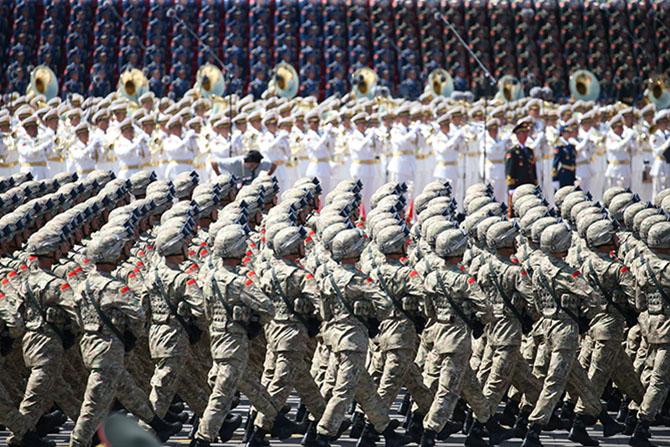
For decades, it has been fashionable to quip that China doesn’t have a foreign policy. It may be on the way to getting one. A debate has begun that challenges basic assumptions about China’s role in international affairs. Deng Xiaoping’s “hide our capabilities and bide our time” strategy is being re-examined. This could lead to a re-evaluation of the fundamental interests that shape China’s participation in the existing order.
The government that was constituted three years ago was thought to need the customary year or more for a shakedown period, as it cautiously learned how to wield the power of office. That turned out to be dead wrong. Xi Jinping consolidated his control with breathtaking speed, rolling out an anticorruption campaign that includes unprecedented reach into the senior-most ranks of government. The anticorruption campaign is not just a political housecleaning. It also serves to chasten anyone – journalists, reformers, intellectuals – who imagine that they are safe, or that thought experiments are welcome. Adversaries and friends alike are off-balance, reminding many of a classic Maoist device. What remains unclear is whether these tactics are the result of supreme confidence or uncertainty and a lack of direction in the face of a changing economy and the rise of new media.
Against this new domestic backdrop there is an emergent international security theory for China. While not yet policy, it is being discussed among leaders and commentators and test-driven in several new initiatives. It was previewed by President Xi at his November 2014 Foreign Affairs Work Conference speech, with an emphasis on activism and security: maintaining and protecting China’s legitimate rights, and developing a community of interests with Asia-Pacific countries that will, in the future, look to China for leadership
It turns on a question: Is it best for China to continue to try to shape the Westphalian model of global power, or should it start now to create its own version of the world order? For students of China’s foreign policy, this seems an impossibly ambitious notion. Hasn’t China been a major beneficiary of the World Trade Organization’s disciplines, the predictability and risk mitigation afforded by Bank/Fund membership, and the no-cost stability provided by the US security presence in Asia? Certainly. The debate now under way is unlikely to produce a clear choice to reject all features of a system that has so well served Chinese interests. Still, there is a serious conversation beginning about the future gains from playing inside structures that Beijing did not create, and may be unable or reluctant to reshape.
What experiments are under way? The move to create an Asian Infrastructure Investment Bank and set up other development assistance banks like the BRICS and One Belt, One Road Banks are but three data points. China’s aggressive increased use of cyberattacks is another. The declaration of an Air Defense Identification Zone in North Asia and the manufacture of islands on scant coral reefs in disputed waters in the South China Sea has denied Chinese diplomats the ability to say that their government has never acted to inhibit sea lanes and never militarized a territorial dispute in those troubled waters.







%20resized.png)
